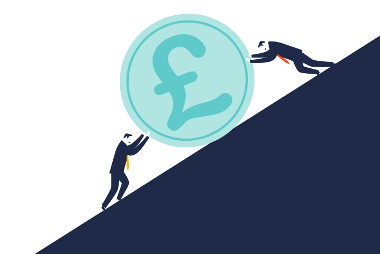Fraud experts have warned charities that the Covid-19 pandemic is likely to create more 'opportunities and motives' for criminals to target charities.
The warning has come from the Fraud Advisory Panel and the Charity Commission at the start of Charity Fraud Awareness Week (19- 23 October), to raise awareness about threats, including from cyber crime.
According to the Charity Commission charities have reported being victims of fraud or crime 645 times since the start of the pandemic in March, amounting to £3.6m in total losses to the voluntary sector.
The regulator says that the figure is likely to be higher as “fraud is known to be undereported”.
Remote working and an increase in online activities, combined with charities' “tendancies to place goodwill and trust in individuals, may make them especially vulnerable”, adds the Charity Commission.
One case the regulator saw involved a fraudster using beneficiary's story of personal struggle during the pandemic to pressure a charity into making a payment quickly.
Economic uncertainty amid the health crisis is also increasing perpertrators' temptation to commit fraud, says the regulator.
“When fraud hits charities, its impact is felt far beyond the balance sheet - it is people that are let down, often hard-working volunteers or people in desperate need,” said Charity Commission CEO Helen Stephenson.
Lack of training
Charities are seen as more vulnerable to criminals as staff and volunteers are less likely to have had fraud training, according to the Fraud Advisory Panel. It added that "with the economy under strain, the opportunities and motives for fraud are likely to rise".
Hello #UnitedKingdom. __
— Fraud Advisory Panel (@Fraud_Panel) October 19, 2020
Welcome to #CharityFraudAwarenessWeek 19-23 Oct! Now, more than ever … #charityfraudout #charityfraud @ukhomeoffice @hmtreasury @NCA_UK @cabinetofficeuk pic.twitter.com/12B229v3Uu
“It's never been more important that voluntary organisations are fraud aware, and Charity Fraud Awareness Week is a timely opportunity for organisations to take stock and ensure they're protecting themselves, said Fraud Advisory Panel chair David Clarke.
“Fraudsters want to exploit weaknesses exposed by the pandemic, so we recommend all charities are aware of common fraud risks, take time to check what they are being asked to do, and keep their organisations safe.
“Now is a good time for charities to revisit and review controls that may have been introduced as part of their crisis management response at the start of the pandemic to see if they need strengthening.
“Everyone involved in a charity, from the most senior to the most junior employees, should be givent he skills to recognise the tell-tale signs of fraud, and know what to do if they have concerns.”
Less than a tenth of charities had a fraud awareness training programme in place, according to a study by the Charity Commission and Fraud Advisory Panel.
Charity Fraud Awareness Week is a global week of campaigning around fraud and cybercrime prevention. Also involved is the Institute of Chartered Accountants in England and Wales.













Recent Stories